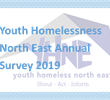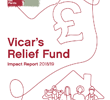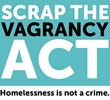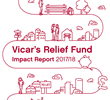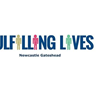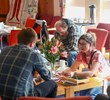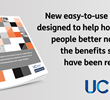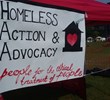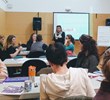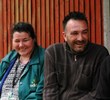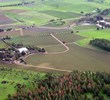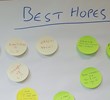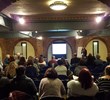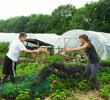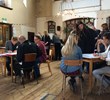This a guest blog from Basis Yorkshire, who facilitate Leeds Women’s Homelessness and Housing Frontline Network with Together Women and Leeds Women’s Aid. The story originally featured on Basis Yorkshire's website.
On 15th November the first Leeds Women’s Homelessness and Housing Frontline Network Meeting took place. After months of preparation it was so great to see so many frontline workers from across such a wide range of services taking time out their busy schedules to join us.
The meeting was facilitated by Cat Tottie (Influencing Change lead for Housing at Basis Yorkshire) who led some great discussions and reflections, and we were also joined by Lisa Fisher, Senior Commissioning Manager for Leeds City Council, who delivered an excellent talk on the Leeds Housing Strategy. This first meeting set the tone for future meetings, with Cat outlining the purpose of the Network and its goals moving forward.
“Women are much more likely to be in hidden homelessness situations, and they often aren’t known to homelessness services.”
Cat began the session by outlining the purpose of the Network and why it’s so important. There needs to be a greater understanding of the different ways in which women experience homelessness, and at a strategic level, discussions need to ask what services can do to deliver consistently gender friendly services. The Network aims to act as a link between Leeds City Council at a strategic level, and frontline practitioners who have an insight into how strategy plays out at ground level and what’s needed to improve approaches to women’s homelessness.
Cat also emphasized that the Network was not just about influencing strategy, but also about creating a supportive and collaborative space for frontline practitioners. Frontline work can be isolating, and the Network aims to allow frontline practitioners the opportunity to share experiences not only with a view to influencing strategy but also as a way to facilitate open and honest peer-to-peer support.
“Homelessness is not housing alone”
Lisa Fisher’s talk outlined the work of Leeds City Council thus far in strategizing against hidden homelessness. She spoke to the Network about the progress and development that had taken place since conversations started in 2019, when it was noted that women were not being recognized in the definition of rough sleeping and data around women’s homelessness was not readily available and not representative. Since 2019 an “analyze, review, plan, do” approach has been taken and strategy is constantly being developed and adapted in response to the way services are received on the ground. In light of this, Lisa emphasized the importance of a #TeamLeeds approach which draws on cross sector experiences.
After Lisa’s talk Cat led a reflective session facilitating discussion amongst the members, this was a great opportunity to get discussions started between network members. Hearing from network members was wonderful and the discussions that took place set the tone for future meetings with some excellent contributions and discussion points raised.
Members discussed the challenges they face as frontline workers and what would make a difference to them in their work. Common challenges included difficulties with women not meeting criteria, having to deliver bad news and the mental toll this had on workers and the way in which existing approaches to decision making makes work more reactive rather than proactive. Turning to what could be done differently, responses emphasised the importance communication and collaboration as well as the need for more information. Suggestions were made for greater transparency surrounding decision outcomes, a breakdown of referral pathways, more clarity on what services and pathways are available, and opportunities for reflective practice and peer-on-peer discussions.
“Most hidden homelessness isn’t those with complex needs. Support needs often become more intense over time as women struggle to cope with insecure housing. Earlier intervention will result in less support required overall.”
The session ended with members discussing their three wishes for women’s homelessness in Leeds which produced some more great insights into the challenges of frontline work and the complexities of women’s homelessness in Leeds and what could be done to help.
Wishes included a community-led drop in centre for women that cross-cuts with health, domestic violence and other services and approaches rather than taking homelessness as a stand-alone issue. More support workers, as in the current situation workers are expected to take so much on including having to deal with mental health crises without appropriate support in return. Increased move-on accommodation capacity. Immediate responses and shorter waiting times for services. A team tailored to those experiencing No Recourse to Public Funds. And better access to medical services like dentistry.
This discussion brought the meeting to a close, ending a really engaging meeting with some great practitioners. The passion and desire for positive change really came through throughout the discussions and it was great to hear from so many frontline workers. The conversations and conclusions from this meeting will help shape the direction of the Network going forward.
Thank you to everyone who attended the meeting, it was great to see so many there. If you would like to attend the next event please sign up via Eventbrite by clicking on the following link: 14th Feb Leeds Women’s Homelessness and Housing FLN. If you’d like to receive updates on our Network, and be notified about future events via email, please sign up to our mailing list by clicking on the following link: Mailing List Sign.









